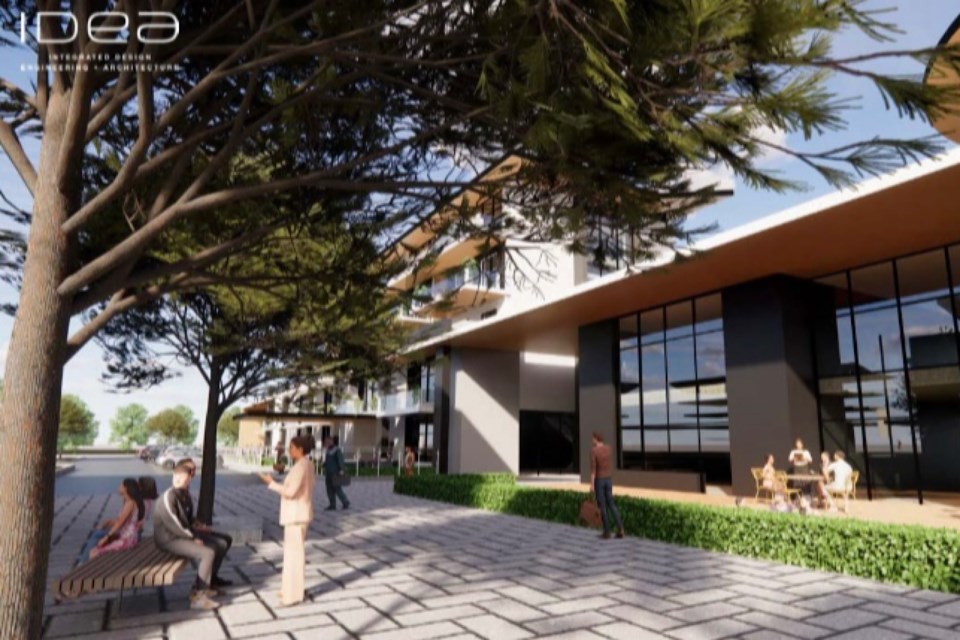Sault Ste. Marie city council will learn details next week of a bold vision for an $83-million Bio-Economy Showcase neighbourhood proposed for part of the waterfront Gateway property.
So far, the project – with wood, wood products and green construction elements – is just a pre-feasibility study.
It has lot of beautiful architectural renderings but so far no financial backers.
"It should be noted that the pre-feasibility study is a conceptual document," says Rick Van Staveren, the city's director of economic development.
"Much more detailed planning and costing would be required for this development to proceed, and a developer would need to be identified to advance the project," Van Staveren says in a report prepared for Monday's city council meeting.
"The purpose of the document is to consider sustainable building methods that bring a host of benefits and have the potential to support the northern Ontario economy.
"Further, while the green neighbourhood can be developed anywhere, the study provided the opportunity to re-imagine the Gateway site and consider what could be done with the land," Van Staveren said.
Here's a breakdown of the project components:
- about 145,000 to 160,000 square feet for residential accommodation. Mix of 1- and 2-bedroom apartments, and/or condominiums
- approximately 12,000 square feet of amenities to support the residential living environment
- approximately 26,000 square feet of commercial/retail space to support businesses and personal support services
- 5,000-square-foot visitors centre to showcase urban community living, alternative energy, forest sustainability and bio-economy innovation
The pre-feasibility study was done with a $50,000 grant from the Thunder Bay-based Centre for Research and Innovation in the Bio-Economy (CRIBE), an independent non-profit corporation that brings together researchers, the forest sector and end users to develop a sustainable, profitable provincial forest bio-economy.
The city's economic development staff first approached CRIBE in September 2022.
"CRIBE supported the project and provided a grant of $50,000 to further explore the concept with a pre-feasibility study," Van Staveren says.
"The request for proposals process was completed early in 2023 and awarded to IDEA, an architectural firm based in Sault Ste Marie and Ottawa."
Van Staveren says the pre-feasibility study confirmed the concept is possible on a brownfield site, although a full environmental assessment must be done to verify feasibility.
The project could help Sault Ste. Marie build its housing stock.
"Construction of buildings as outlined in this study would provide a quick and ecologically practical solution to part of the housing shortfall." he says.
Tulloch Engineering is recommending low-rise buildings.
"A structural slab-on-grade supported by driven piles is likely the preferred option. Basement structures would not be considered due to the environmental concerns for human health.
"Minimizing excavation and eliminating space below grade would be the preferred method to redevelop this brownfield site." Van Staveren says.
"The high-profile location makes it ideal for a Bio-Economy Showcase community. Construction of such a building complex would have the potential to lead to attraction of wood product manufacturing facilities."
"Mass timber buildings have the potential to be modularly constructed and erected in as little as 30 days. Due to their modularity, they could potentially have applications across the north in areas such as small/remote communities, mining sites, Indigenous communities, logging sites and other locations where there is a need for housing."
Monday's city council meeting will be live-streamed on SooToday starting at 5 p.m.
